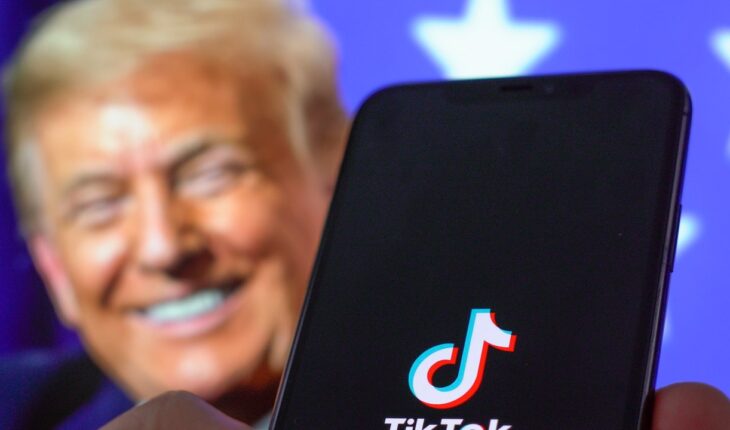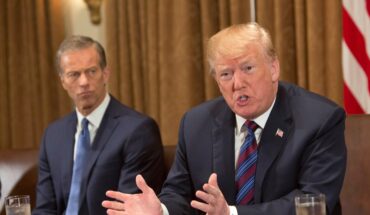President-elect Donald Trump’s legal team asked the Supreme Court to halt a law requiring TikTok to be sold to an American company or shut down by January 19, the day before his inauguration. In a petition filed on Friday, the legal team argued that the incoming president should have the opportunity to “resolve the issues at hand through political means” once he takes office.
While the brief did not directly address the legal question at hand—whether banning the platform for the some 170 million Americans who use it violates their First Amendment rights to free speech—it noted that “at this juncture,” Trump “opposes banning TikTok in the United States.”
The Supreme Court agreed to hear the case earlier this month after a bipartisan measure—the Protecting Americans from Foreign Adversary Controlled Applications Act—passed Congress and was signed into law by President Joe Biden. The law cites national security concerns and would require TikTok’s Chinese owner, ByteDance, to either sell to an American company or face a ban.
“President Trump alone possesses the consummate deal-making expertise, the electoral mandate, and the political will to negotiate a resolution to save the platform while addressing the national security concerns expressed by the government — concerns which President Trump himself has acknowledged,” the brief, signed by Trump’s counsel and his pick for US solicitor general, D. John Sauer, reads.
TikTok’s legal team and the Biden administration also submitted briefs for the court to consider in the weeks leading up to oral arguments on January 10. TikTok argued that Congress signing the law was an “unprecedented attempt to single out petitioners and bar them from operating one of the nation’s most significant speech venues” and was “profoundly unconstitutional.” They added that the government “has banned an extraordinary amount of speech” and “gets facts wrong when it bothers to provide them.”
The Biden administration held that the law “addresses the serious threats to national security posed by the Chinese government’s control of TikTok, a platform that harvests sensitive data about tens of millions of Americans and would be a potent tool for covert influence operations by a foreign adversary.”
Another brief, filed on behalf of users of the service, acknowledged the ongoing geopolitical tension between China and the US, yet argued that allowing the law to take effect amounts to a “suppression of Americans’ speech” and “flies in the face of our history, tradition and precedent.”
Trump’s more recent support for the application is a shift from when, while still president in 2020, he unsuccessfully attempted to ban the platform, citing national security concerns. Federal courts halted his efforts.
Despite expressing disdain for the Chinese-owned app, he isn’t the only government leader who has used it to reach voters and campaign. According to an analysis by NBC News, 23 members of Congress who voted for the TikTok ban have verified accounts, and many of them use the platform to “campaign, defend their beliefs and curate their public image — even as they argue that the app poses a threat to American users.”
As Vanity Fair’s Gabriel Sherman reported in March, Trump’s shift could be influenced by his complicated relationship with billionaire and mega-donor Jeff Yass. Yass, via Susquehanna International Group, put a few million dollars into ByteDance in 2012—an investment now worth some $40 billion, according to the Financial Times. The billionaire had previously urged Trump not to run and donated millions of dollars to his primary opponents, but with the former president’s electoral popularity and the growing threats to TikTok, Yass invited Trump to speak at a Club for Growth donor retreat at The Breakers in Palm Beach in March.





